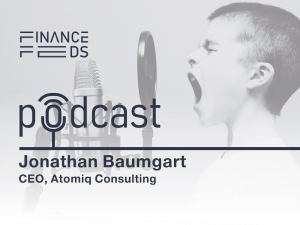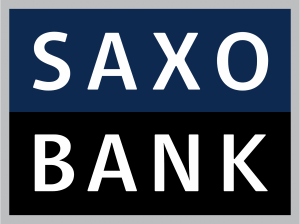FF Podcast Ep.#25: Atomiq Consulting CEO Jonathan Baumgart on FX/CFD broker licensing
Join us as we delve into Jonathan Baumgart’s profound insights from the FinanceFeeds Podcast. The CEO of Atomiq Consulting discusses critical industry trends, the intricacies of brokerage licensing, and the evolving landscape of forex trading.

FF Podcast Ep.#25: Atomiq Consulting CEO Jonathan Baumgart on FX/CFD broker licensing
Join us as we delve into Jonathan Baumgart’s profound insights from the FinanceFeeds Podcast. The CEO of Atomiq Consulting discusses critical industry trends, the intricacies of brokerage licensing, and the evolving landscape of forex trading.
In the new episode of the FinanceFeeds Podcast, Jonathan Baumgart, the esteemed CEO of Atomiq Consulting, shared his extensive experience in the forex industry. With a summa cum laude degree from the University of New Hampshire and a remarkable journey from FXCM to Boston Technologies and then to the founding of Atomiq Consulting, Baumgart is one of the most active thought leaders within the FX brokerage industry.
Listen on your favorite streaming audio portal or our Youtube channel.
Jonathan Baumgart’s journey as a consultant has been marked by significant shifts, particularly in response to regulatory changes. “Back then, there was a massive opportunity in the offshore licensing space, because ESMA scared a lot of brokers,” he noted, shedding light on how regulatory dynamics have influenced market movements, broker strategies, and his own career.
“And so a lot of the business during that period went offshore. And now it’s just kind of understood, or a standard that any major broker will have a variety of jurisdictions. And for those who want the higher risk, well, they go to the offshore wing or entity of the broker. And I think, almost all the established brokers are set up this way. And I happened to be right in that place around that period. So I went from offering it to jumping into licensing. And that is the majority of what I do today.”
“You absolutely have to have a license”
A key theme in Baumgart’s discourse was the vital role of banking in the forex industry. He emphasized, “The number one focus of any new broker is banking,” noting the competitive necessity for reliable banking relationships and also pointing out the challenges for unregulated companies in securing banking services, a significant barrier in today’s market. “Now, you absolutely have to have a license. So not only do you need it to get a bank account, but the barriers to entry have gone up for technology”, as he mentioned trading platform leader MetaQuotes (MT4/5), which has raised its requirements for brokers.
Listen on your favorite streaming audio portal or our Youtube channel.
Baumgart also delved into the nuances of global licensing, explaining, “The biggest challenge when it comes to the licensing side, is there are just so many jurisdictions out there, it can become overwhelming. I mean, theoretically, there are maybe 30 to 35, places, you could consider getting a license. However, each of these regions has specific criteria. And it’s, it’s very much bespoke.”
Discussing startup challenges, he remarked, “The barriers to entry have definitely gone up,” indicating the necessity for substantial capital and compliance in the modern regulatory environment.
The Caribbean: “I do not find them to be the best options for startups”
Addressing offshore licensing, Baumgart offered a critical examination of St. Vincent and the emergence of Comoros as an alternative. He expressed skepticism about the latter, describing it as “more or less just a glorified PDF,” emphasizing the need for legitimate licensing processes.
He also shared insights on the suitability of Caribbean jurisdictions like the Bahamas, BVI, and the Caymans for FX and CFD brokers.
“I do not find them to be the best options for startups. Every region you outlined, will require an office, but that I don’t think is the biggest obstacle. Banking is […] Our team theoretically could help you get this license. But from our experience, the banks tend to be not as cooperative if you’re a startup. BVI, Cayman, the places you mentioned, because they’re more well-known names. If you’re a startup broker and don’t have an established track record […] the bank looks at it as too high risk. So these areas aren’t the best for a new broker.
Listen on your favorite streaming audio portal or our Youtube channel.
“Bahamas by default. I would not recommend it because the regulatory authority wants $45,000 every fiscal quarter, which is an enormous sum of money. I mean, what startup can afford something like that? However, if you’re a broker flush in cash, maybe you want to get a Bahamas license instead of sponsoring a football team, you know because you just want to show off.
“Mauritius is far more friendly to what I call a startup broker”
In his recommendations for broker startups, Baumgart highlighted Mauritius and Seychelles as more accommodating options. Reflecting on Vanuatu’s changing landscape, he noted the increased demands of their licensing process. Finally, Baumgart advised potential brokers on realistic licensing timelines, suggesting, “It can be less [than a year], but realistically, to get everything fine-tuned, I think a year is probably what it takes.”
“A place like Mauritius is far more friendly to what I call a startup broker. The banking access and the fees are the same. And besides the name, there’s no material difference in what you get. And I would say that name recognition does play a role. But I think it’s more important for a broker that is perhaps a bit more mature, has licenses and other areas, then you can get the Cayman or the BVI. But if you’re just a startup, you can essentially achieve the same thing: bank account, offshore regulation, payments, but it’s a fraction of what you would spend and it’s easier to get,” he continued.
Listen on your favorite streaming audio portal or our Youtube channel.
Baumgart also highlighted that while some regions like the Bahamas are relatively swift in processing licenses, others like the Cayman Islands and the British Virgin Islands have excessively long approval periods. He noted that this slow pace is a significant drawback for startups seeking licenses.
As to the challenges in hiring qualified local staff in smaller jurisdictions like Mauritius, Seychelles, and Vanuatu, he pointed out Seychelles as particularly challenging in finding qualified directors, making it a costlier region and also slower in processing, requiring additional legal opinions for targeting clients from regions not initially provided to the regulator.
The rise of Mauritius and Labuan
Baumgart expressed a preference for Mauritius and Labuan for startups due to their focus on growing financial services, offering more amicable licensing timeframes, and lesser director requirements.
Furthermore, he noted Mauritius and Labuan’s efforts to establish themselves as FinTech hubs, offering various financial services licenses, including for cryptocurrencies. He contrasted this with the Cayman Islands and the British Virgin Islands, which he perceives as more interested in serving as banking hubs for large multinationals.
Regarding Vanuatu, Baumgart shared that recent changes have made the region less appealing due to lengthy processing times and increased requirements, creating a bottleneck in service delivery. He advised startups to consider Mauritius and Labuan for their favorable conditions.
Listen on your favorite streaming audio portal or our Youtube channel.
On the topic of timelines for obtaining licenses, Baumgart suggested that a year is a realistic expectation, considering the time needed for paperwork and bank account approvals. He recommended that startups initially operate under an existing broker as referral agents to begin operations without waiting for license approvals.
Finally, Baumgart emphasized the importance of transparency in establishing business relationships in the tightly-knit trading industry. He advised using intuition and personal interactions to evaluate potential partners and stressed the value of starting with small collaborations to test business relationships.
The episode of the FinanceFeeds Podcast featuring Jonathan Baumgart stood out as a breath of fresh air for brokers seeking deep insights into the intricacies of forex licensing. Baumgart’s detailed exposition, particularly beneficial for startup brokers, demystifies the complex landscape of forex trading and regulatory compliance.
Sponsorship opportunities on FinanceFeeds Podcast
FinanceFeeds is the world’s premier online news publication for the global online trading industry. Our podcast series opens up new sponsorship opportunities for companies looking to tap into our niche audience. For more information, please email us at [email protected].









